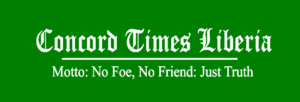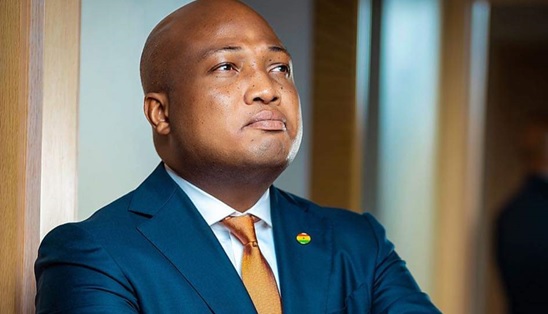The image of Liberia has once again been thrust into controversy, as a Ghanaian parliamentarian unveils a startling revelation involving a staggering US$20 million. Hon. Samuel Okudzeto Ablakwa, a prominent member of the Ghanaian Parliament, has raised alarming questions regarding a mysterious shipment of cash reportedly sent from London to Ghana, allegedly destined for Liberia. The funds, currently secured in the vaults of the Bank of Ghana, await transportation to their intended location. However, the legitimacy of this transaction is now under scrutiny, with conflicting documents emerging that cast a shadow over the entire operation. As the investigation unfolds, the implications for Liberia’s reputation could be far-reaching.
Ablakwa, in a public statement on Facebook on Tuesday, August 26, 2024, announced, “I am keenly tracking the movement of some US$20 million cash which arrived in Ghana via Kotoka International Airport (KIA) this afternoon. The cash has since been cleared by officials of the Bank of Ghana.” He expressed concerns about discrepancies between the supporting documents of the shipment and the content of an August 21, 2024, letter from the Bank of Ghana to customs and airport officials. This letter stated that the money was ordered by the Central Bank of Liberia and would be re-exported to Monrovia when a flight was available.
However, intercepted documents, including an airway bill, suggest a different story. The airway bill in question, No. 176-7073-7225, corresponds to the shipment carried by Emirates Airline Flight EK787, which arrived in Ghana on Wednesday, August 27, 2024, at 11:05 hours. The consignment of uncirculated banknotes was transported from Heathrow Airport in London, and the documents indicate that the consignee is the Bank of Ghana and not the Central Bank of Liberia.
The Ghanaian parliamentarian has taken his concerns to social media platforms, where he has been vocal about the inconsistencies in the documentation related to this shipment. “The Bank of Ghana must offer explanations on why supporting documents are not consistent with the content of its August 21, 2024 letter to customs and airport officials seeking to clear the uncirculated banknotes,” Ablakwa insisted.
Ablakwa pledged to keep monitoring the situation closely. “My international partners and I will keep tracking this US$20 million cash from London to confirm if indeed the fresh banknotes will be transferred to Liberia, when the transfer will be carried out, and if the full amount will be transferred,” he added. His commitment to uncovering the truth underscores the gravity of the situation and its potential implications for both Ghana and Liberia.
As of now, it remains unclear whether the US$20 million indeed belongs to the Central Bank of Liberia, as claimed by Bank of Ghana officials. The inconsistency between the consignee details and the statements from both banks has sparked suspicions and calls for a thorough investigation. The public, along with international observers, is awaiting further clarification from both the Bank of Ghana and the Central Bank of Liberia. The unfolding events could impact diplomatic and financial relations between the two West African nations, as questions about transparency, governance, and accountability come to the forefront.








